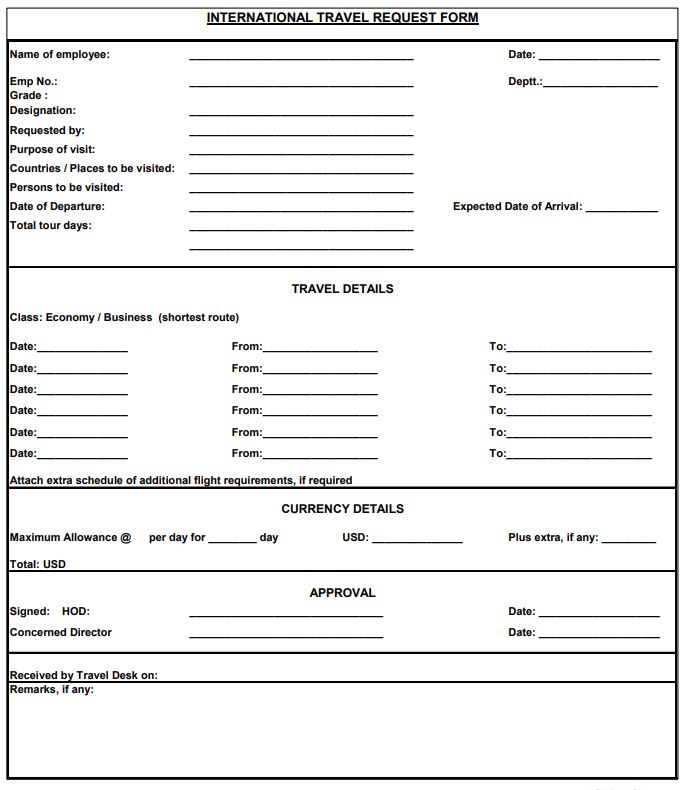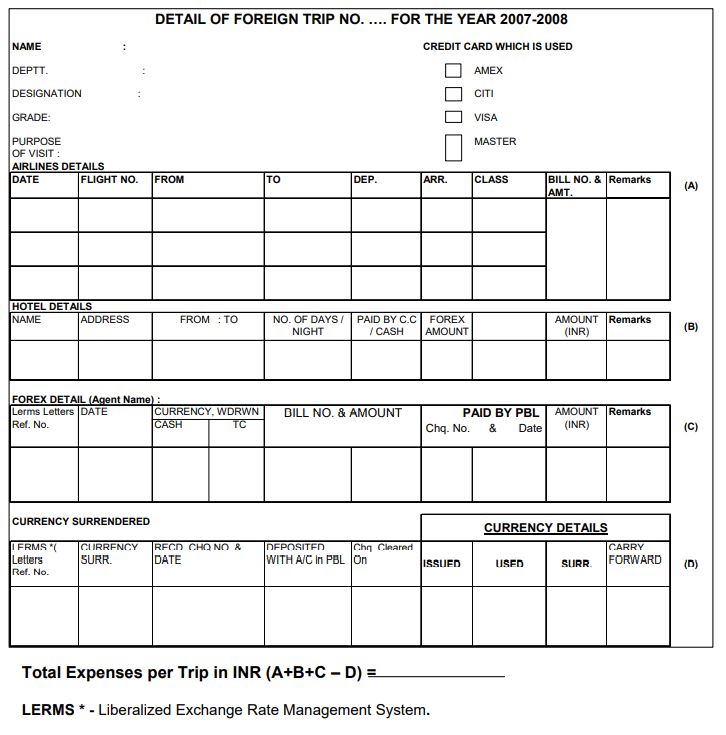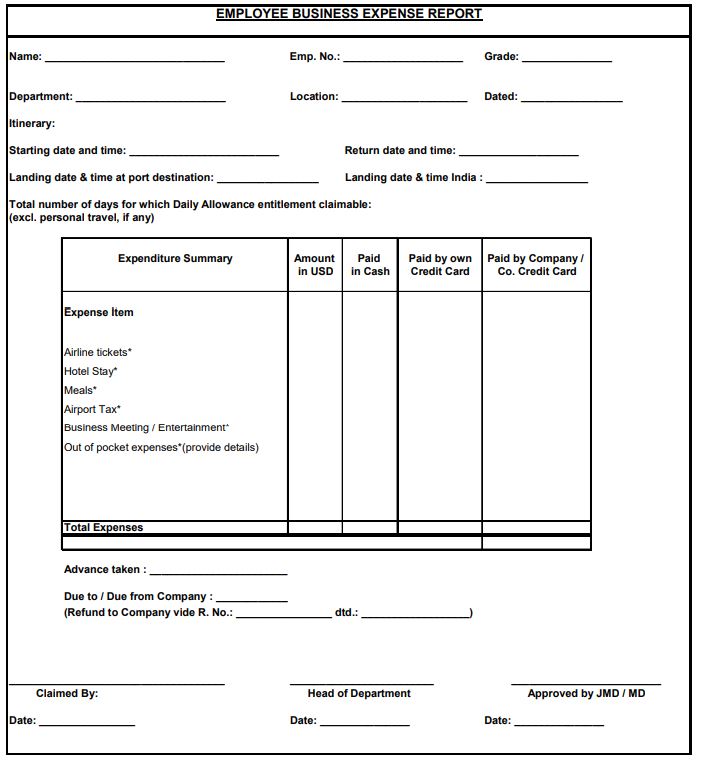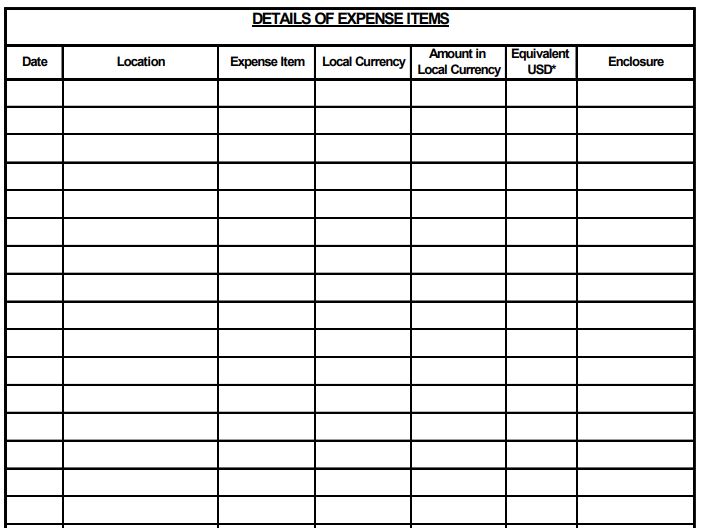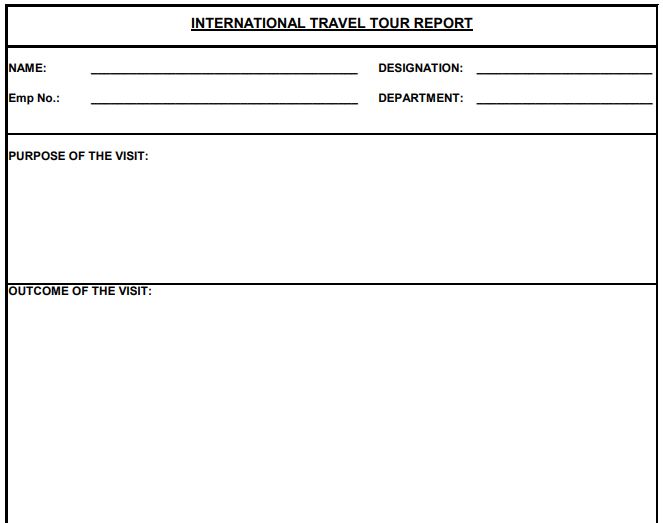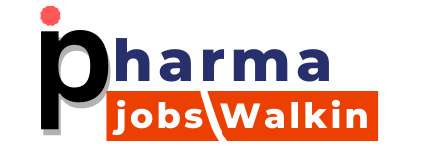Policy: This Policy shall be called the “International Travel Policy”.
Objective: The objective of this policy is to provide employees with a reasonable a comfortable level of travel, lodging & boarding facilities in a cost-effective manner in case of international travel.
Scope: All the employees from grade E8 and above, working on the regular rolls of x company will be covered under this policy.
Responsibilities: The International Travel Desk department of the company is responsible for compliance both in terms of application and in audit post approval of expense reports by the head of the department to see compliance in terms of company policy & Reserve Bank of India guidelines.
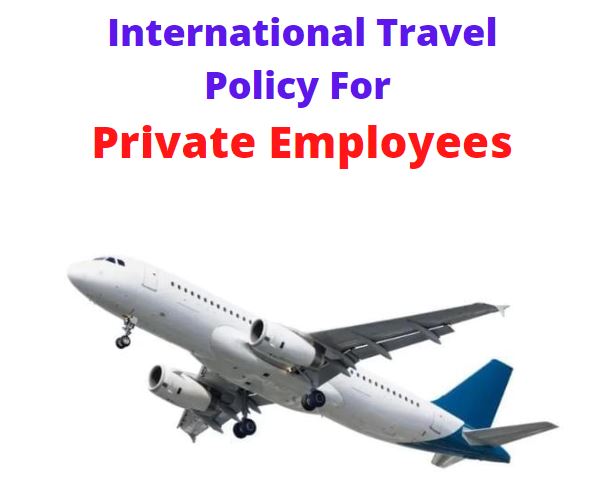
The List of Company’s International Travel Policy Procedure for Employees:
Travel Authorisation
Employees are expected to ensure that the travel requested is consistent with the business objective of the company. Employees are also expected to use good business judgment in the selection of travel. Once a travel request is approved vide Travel Request Form ( Annexure: I), employees are expected to submit an authorized Travel Request Form as per International Travel Policy to the Travel Desk of the company at least 15 days in advance but not less than 10 days. Travel desk incurs lower costs when travel arrangements are made as far in advance as possible. However, in cases where a visa is to be obtained travel request is to be sent at least 30 days in advance to the travel desk and the passport must have a minimum validity period of six months from the date of Travel.
Travel Arrangements
Reservation Procedures – Employees are expected to submit a Travel Request Form to the Travel Management Desk (TMD) of the company at least 15 days in advance but not less than 10 days prior to a cost comparison in case of advance booking of 15 days, 10 days and less than 10 days.
Air Travel
All airline travel reservations must be made through the company’s travel desk. Employees shall not pay for these charges unless in an emergency situation.
Mode of Travel
- Employees of all grades will travel in Economy class as per the International Travel Policy.
- Chief Executive / President / Sr. Vice President: Business Class.
- E1 to E8: Economy Class
- All other business class travel in case of business needs must have prior approval from the concerned Director.
Daily Entitlement
The employees are eligible for daily entitlements, depending on the country of visit or company to company.
These daily entitlements are towards all reasonable expenses incurred at the hotel for:
- Room Rent
- Reasonable Laundry expenses if the stay is more than 3 nights.
- Official Phone Calls
- Car Parking Charges
- Use of Business Centres, Swimming Pool, Fitness Center, etc.
List Of Permitted Expenses
Apart from the above expenses related to a hotel stay, the employee can claim the following expenses on actuals as per the International Travel Policy:
- Meals & Snacks
- Tips and porterage
- Local Conveyance
- Car parking charges – if a car is hired (other than at the hotel)
- Expenses on self-driven cars with bills or on taxis with vouchers/bills.
- Intercity travel costs such as by trains, buses, etc.
- Photocopying and other business materials preparation costs.
- Medical expenses
- Excess baggage charges
- Airport arrival/departure taxes
- Visa charges
- Air ticket / re-routing costs
- Excess airfares
- Official phone calls, if supported by bills that specify the numbers called (names and designations of the contacted persons to be written against each such number).
- Exchange losses are based on official receipts of exchange houses and banks.
- Corporate Gifts
- Entertainment of commercially important persons Calls to residence not exceeding $ 30 per week. Discretion should be used here to keep it to a minimum.
- Airport transfers
All the expenses should be supported with bills/receipts/cash memos.
Out Of Pocket Expenses
It may be noted that Out of pocket expenses are to cover the additional cost of Hotel Stay and purchase of Books and magazines ( for which bills need to be produced )and for other incidental expenses (for which bills cannot be produced or are not given ) These expenses must be mentioned in the International Employee Business Expenses Report. Apart from the daily entitlements as per grade & levels as mentioned in point number IX. employees can also claim out-of-pocket expenses; subject to a maximum limit as mentioned below :
E1-E2: $ XX per day
E3: $ XX per day
E4: $ XX per day
E5-E8: $ XX per day
Travel Advance
As per International Travel Policy, The employee is eligible to use credit cards. Only in certain exceptional circumstances, cash should be withdrawn in countries where credit cards cannot be used. All such expenses incurred shall be supported by vouchers/receipts and included in an expense statement. The sanction of these expenses will be at the discretion of the HOD. For the purpose of foreign exchange allowance calculation and expenses statement, the number of days eligible for foreign exchange will commence from the day of landing at any overseas destination and will be restricted to the last day of the overseas stay.
A corporate Credit Card issued to frequent travelers is the property of the company and should be used for official purposes only. The expenses incurred through credit cards should be reflected in the expense statement and submitted along with vouchers. The total expenses incurred on the credit card, currency, or traveler’s cheques should not exceed the admissible daily allowance per day. IAPA cards will be issued for frequent flyers with adequate health and risk insurance coverage.
Settlement Of Travel Advance
The official on return from tour shall submit the Employee Business Expenses Report (Annexure: III) along with supporting proofs and Tour Detail vide (Annexure II) duly approved by the HOD / Director concerned within one week.
At the time of submitting the Statement of Expenditure the following points are to be taken into consideration:
a) If the bill is in another/local country currency, the official traveled shall write the nature of expenses, date, amount, and conversion rate in the English language on the bill.
b) The same particulars are to be mentioned under the “local currency column” and USD currency column in the expense statement.
c) Exchange loss, if any, must be supported by original exchange vouchers.
d) Supporting documents are to be arranged in chronological order.
e) All supporting documents shall be enclosed except for conveyance, tips, etc.
f) The mode of travel for local conveyance used shall be written in the expense statement.
g) Air ticket jacket or e-ticket copy must be enclosed with the expense statement.
h) The name of the currency of the country and conversion rate is to be written separately in the expense statement.
After submitting the bills, the person concerned may hold the left-out foreign currency for the next trip if the next trip is within 30 days, else the balance of foreign currency must be returned to the issuing finance dept.
Discounted Airfares
The following types of discounted airfares will be considered in determining the lowest airfare:
Use of Alternative Airports – Flights out of an alternative airport may be required if round-trip savings exist and both airports are in the same metropolitan area. , For example, flying out of O’Hare International Airport can cost approximately 17% more than flying out of Midway Airport in Chicago. hura Road, New Delhi – 110044, India.
The company will look at both options and provide employees with the most cost-effective choice, taking into consideration all additional expenses that may be incurred by using the alternative airport.
Airline Frequent Flyer Program – Employees may retain the Frequent Flyer Program (FFP) benefits for personal use; however, flight selection will be based on the lowest available airfare as defined in this policy. Any employee found traveling excessively to gain FFP benefits for personal use will be considered a violation of company policy & will be dealt with accordingly.
Employees Traveling Together – As per the International Travel Policy, The number of employees traveling together on the same flight cannot exceed 2 executives or 3 non-executive travelers. When more than 3 travelers are involved in the same travel they must take a preferably different flight.
Lost or Excess Baggage – Individual airlines are responsible for retrieving and compensating travelers for lost baggage. The company does not reimburse travelers for baggage lost while traveling on business as it remains covered in Insurance coverage. Employees will be reimbursed for excess baggage charges when traveling with heavy or bulky materials or equipment necessary for business or when the excess baggage consists of Company records or property.
Overnight Delays – Should an airline delay require an overnight stay, the employee should first attempt to secure complimentary accommodations from the airline. If unsuccessful, then can charge the company for the expenses as per the grade applicable. Unused/Voided Airline Tickets – Unused or partially used airline tickets or flight coupons should be returned to the company as soon as possible. The company will partially be reimbursed for these tickets as part of the agreement with preferred carriers. Unused tickets should not be included in expense reports.
Cancellations – When a trip is canceled after the ticket is issued, the employee should contact the travel desk about using the same ticket for future travel or cancellation and refund wherever applicable.
Lost or Stolen Airline Tickets – Immediately upon discovery of a lost/stolen ticket, the employee must report the loss to the company. The employee may be responsible for any processing fees charged by the airline for the lost ticket application.
Payment and Reimbursement Procedures – Employees should report airline tickets as a “Company-Paid Expense” on the Employee Business Expense Report. The airline receipt and itinerary must be included in the expense report.
Accommodations
Stay at Hotel: As per International Travel Policy, Though the Hotel chosen should fit the image of the company, the official is expected to exercise prudence in choosing the Hotel, which is economical for utility and ease for transacting business (proximity to travel to workplace, etc.) Hotel reservations should always be made through the travel desk of the company.
The company intends that hotel accommodation & services be of a standard that will adequately meet the needs of the employee from the standpoint of comfort, safety, conveyance & appropriateness to the business purpose.
The travel desk of the company has established primary & secondary preferred hotels in cities most often visited by the employees. The travel desk will make necessary arrangements for the accommodation of the employees.
The travel desk of the company is expected to have consent from the employees for twinsharing basis accommodation.
In case of any cancellation required, employees are expected to inform to travel desk of the company immediately so that the travel desk of the company can cancel hotel reservations within the hotel cancellation policy timeframe. The travel desk of the company must obtain a cancellation no. when canceling a hotel reservation.
Laundry Service
Actual and reasonable laundry expenses will be reimbursed. Receipts must be provided. This only applies if the employee has been gone for five (5) days in a row or if the trip was unanticipatedly prolonged.
Ground Transportation
Employees are expected to utilize the most logical, practical, and least costly method of ground transportation. Alternative forms of transportation (state-owned vehicle, airport bus or limousine, hotel courtesy car, taxi, subway, train, bus, etc.) should be considered before renting a car. Employees can rent a car to their destination when driving is more cost-effective than airline or rail travel. At the destination, employees can rent a car when it is less expensive than other transportation.
Meals
Actual, reasonable, and necessary costs for meals will be reimbursed. The employee should be guided by what he/she eats at home.
Entertainment
The employee’s specific assignment requires the entertainment of the company’s customers potential customers, or others as appropriate. The entertainment expense is fully receipted (original receipts required) Expenses are authorized by the employee’s manager. The persons entertained, the place, and the purpose of the entertainment must be clearly specified.
Non-reimbursable expenses include but are not limited to Alcoholic beverages, airline club dues, rental car, club membership fees, airline head seat rental, in-room movies, fines for traffic violations, insurance on life or personal property while traveling, purchase of clothing and/or other personal items, expenses for the family, child, pet, home, and property care while on a trip.
Corporate Gifts
The amount spent on gifts shall be declared in the expense statement mentioning the purpose, type, and to whom the gift was given. Gifts meant for purposes other than business/clients shall form part of the individual’s personal expenditure.
Telephone Uses
Employees should avoid telephone calls from hotels since hotels have high surcharges for telephone calls. Employees’ business and personnel calls while traveling should be made from a public phone or by using calling cards. Employees are also expected to make a reasonable amount of personal calls while traveling.
Payments
As per International Travel Policy, Employees are responsible for paying all business travel expenses except company-paid airfare and submitting an Employee Business Expense Report (EBER) for reimbursement.
Direct Corporate Payment – Airfare for business travel is charged directly to the company’s account. This cost is to be included in the EBER and reported as a “Company Pre-paid expense”.
Corporate Credit Card – A corporate charge card will be issued to authorized personnel who have a legitimate business need in the conduct of their assigned duties. A corporate card will be used wherever possible including hotel bills, car rentals, business meals, business entertainment, etc.
A cash advance via corporate charge card from any ATM accepting such transactions is restricted for the employees unless & until it is emergently required. Submission of balance EBER ( Employee Business Expense Report )- Employees are responsible for paying the balance foreign exchange with properly attached Expenses Invoice/bills to the Assistant Manager – Travel Desk.
Family / Companion Travel
Expenses for a spouse or family members who accompany an employee are not reimbursable unless it is considered a necessary business expense. The employee must also receive prior approval from the department/functional Head before travel. Expense statements should be reported on a separate line of the employee Business Expense report.
Prolong Stay
An employee can increase his/her stay subject to approval from his/her superior. Such a stay should not be more than the approved period by the Visa authority and the company’s leave policy.
Any expense incurred on a stay other than the required period will be borne by the employee. Such expenses include meals and lodging. An employee should inform the tours and travel department of his prolonged stay at the time of planning only so that a Visa can be applied for accordingly and tickets can be booked. Any expenses incurred due to the employee’s prolonged stay will be borne by the employee per the company’s International Travel Policy.
Read Also: Induction Policy and Procedure in Corporates
Expense Reporting
The following conditions apply when submitting expense reports as per the company’s International Travel Policy:
A. Actual and reasonable expenses are reimbursed in accordance with the provisions of this policy and procedure.
B. Employee must submit expense reports during the week after incurring the expenses, or upon returning to the office, whichever is sooner. Failure to submit expense reports within thirty (30) days, will disqualify the employee from receiving reimbursement for expenses incurred while traveling on company business.
C. Include the following items in, or attached to, the expense report when submitting it for payment:
I. Copy of Authorised Travel Requisition Form signed by the department manager.
II. Original or carbon copies of receipts for meals, lodging, air or ground transportation, and any other business expenses.
III. Explanation of any deviation from policy, unauthorized vendors, lodging or transportation, and/or charges submitted “in lieu of” normal expenses.
IV. Original document having the details of tour plan vide Annexure II
“International Travel Policy” Reimbursement
Employees should submit an expense report for each trip on a timely basis (i.e. usually within 5 working days after the end of the trip). All expense reports submitted require the inclusion of the employee’s signature and the date. An employee’s signature on his/her expense report certifies that, under penalty of perjury, the expenses claimed are correct and just in all respects. Reimbursement requests for business meals and entertainment expenses must document the date, customer name(s), location, and business purpose.
As per the company’s International Travel Policy, A subordinate should not pay business entertainment expenses for his/her supervisor merely to avoid another level of expense report review. Employees should submit an expense report for their own expenses; an employee will not be reimbursed for travel expenses incurred by or on behalf of another employee. An employee who has been authorized to approve an expense report attests by his/her signature that the report has been reviewed and is accurate, and that the expenses are legitimate, properly substantiated, and in compliance with approved policies. In the absence of the employee’s immediate supervisor, approval may be obtained from the next highest management reporting level.
A. Reimbursable Expenses
As per the company’s International Travel Policy, Normally reimbursable expenses include actual amounts incurred for:
(i) Lodging;
(ii) Business-related telephone calls and personal telephone calls of reasonable duration (i.e. to “check in” with family);
(iii) Dry cleaning and laundry for trips exceeding five days;
(iv) Commercial airline travel costs (if unable to charge to the Diners Club travel account);
(v) Parking fees and tolls;
(vi) Business meals and entertainment expenses that involve customers, and prospective customers.
(vii) Copies, faxes, supplies, and other similar charges as they pertain to official business.
B. Reimbursement Exclusion
In addition to the exclusion listed elsewhere in this company’s International Travel Policy, the following expenses are not authorized for reimbursement:
(i) Personal expenses such as personal hygiene items, movie rentals, etc.;
(ii) Meals that are included in a registration fee, transportation fare, official function, or are otherwise furnished at no additional cost to the traveler.
Value Added Tax
All countries in the European Union have a system of VAT, which is added to actual expenses. The employee will pay VAT on accommodation, car rental, meals, petrol, business promotion, training, consultancy fees, etc. The standard rate may vary between 6% – 25% in Europe. For e.g., the VAT is 17.5% in the U.K. The organization can apply for a refund of the VAT.
The following points must be taken care of to make the refund of VAT easier and reduce the chances of the claim being rejected:
a) While checking out: The employee must ensure that the bill contains the break up i.e. Total Amount = Rent + VAT.
b) If the break-up is not given, the statement “ALL RATES INCLUDE VAT” should be mentioned on the bill.
c) The bill must contain the hotel Name, Address, and VAT Reg. No. The employee must insist on the original bill.
d) The employee must ensure the following things don’t appear on the Original bill statement.
- Copy or Copy as requested.
- Information
- This is not a Tax invoice.
- Instead of the company address, the name and address of the company,
- which booked the hotel room.
e) In case of credit card payments attach the original bill along with the credit card voucher.
In the case of using a hired car insist on a rental agreement for VAT acceptance. Card bills of taxi fares are not accepted for VAT reclaim, hence, the employee must collect the rental agreement only.
Tour Reports
All the employees who have proceeded on overseas visits must submit a tour report (Annexure: IV) to the Superior, with a copy marked to the HOD as per the company’s International Travel Policy.
Exceptions / Deviations
Exceptions and/or Deviations from the guidelines laid down above should be approved by the HOD / Director(s).
Monitoring of the company’s International Travel Policy
The company’s International Travel Policy while in operation would be reviewed, if necessary, every year in the month of July, and suitable amendments will be made.
Power To Amend
The company reserves the right to amend/withdraw the company’s International Travel Policy at any time without assigning any reason whatsoever. The utility and interpretation of the policy will be at the sole discretion of the Management.
Note: The above International Travel Policy is only for providing a brief review to write the policy. The data provided may be the reason for changes, it may vary or depend on the corporation or companies.
Annexures for International Travel Policy:
